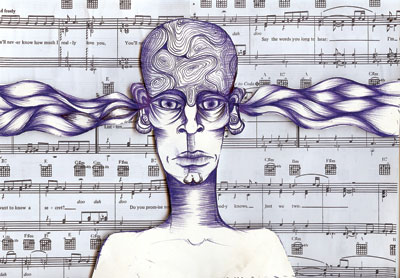All Nonfiction
- Bullying
- Books
- Academic
- Author Interviews
- Celebrity interviews
- College Articles
- College Essays
- Educator of the Year
- Heroes
- Interviews
- Memoir
- Personal Experience
- Sports
- Travel & Culture
All Opinions
- Bullying
- Current Events / Politics
- Discrimination
- Drugs / Alcohol / Smoking
- Entertainment / Celebrities
- Environment
- Love / Relationships
- Movies / Music / TV
- Pop Culture / Trends
- School / College
- Social Issues / Civics
- Spirituality / Religion
- Sports / Hobbies
All Hot Topics
- Bullying
- Community Service
- Environment
- Health
- Letters to the Editor
- Pride & Prejudice
- What Matters
- Back
Summer Guide
- Program Links
- Program Reviews
- Back
College Guide
- College Links
- College Reviews
- College Essays
- College Articles
- Back
A Clockwork Orange by Anthony Burgess
'What's it going to be then, eh?' asks Alex, the antihero of A Clockwork Orange, before embarking upon a "fun" night of robbery, rape, torture and murder along with his friends.
Alex is merely fifteen in a near-future, dystopian England caught up in a culture of extreme youth violence where all the youngsters speak Nadsat, a kind of teenspeak that is an interesting motley of rhyming slang, gypsy lingo and Russian. Alex and his droogs (friends) are a gang of hooligans who possess a sadistic appetite for "ultra-violence".
After downing some "milk-plus" (a beverage of milk mixed with hallucinogenic drugs) at the Korova Milk Bar, the gang, led by Alex, goes on a vicious crime spree before stealing a car and joyriding into the countryside. There, they enter into a cottage inhabited by a married couple, beat up the husband and gang rape his wife.
Later, Alex is arrested and sentenced to fourteen years in prison. But, in exchange for having his prison sentence commuted, he undergoes an experimental treatment called the 'Ludovico Technique' (a play on Beethoven's first name) through which he is brainwashed and conditioned to hate violence. He becomes a pawn in the hands of a corrupt government.
In a novel that has brainwashing as its major subject, Burgess ingeniously introduces his own form of brainwashing which is forcing the readers to learn Nadsat through reading the novel. Although challenging at first, Nadsat words are often clear in meaning from their contexts. Many neologisms are more slangy than entirely invented, like cancer (cigarette), sinny (cinema) or guttiwuts (guts).
A Clockwork Orange brazenly asks this question: is it better for man to choose to be bad than to be conditioned to be good? while leaning towards individual choice and freedom.
What sets Alex apart from other teenagers, apart from his sociopathic behaviour, is his classical taste in music. He listens to Mozart, Bach and most importantly Beethoven, whose Fifth Symphony plays as the novel's central motif, weaving itself cleverly throughout the story. He even adopts a Shakespearean-Biblical way of speaking frequently in the novel. Through this, Burgess addresses the question of whether high or refined art is truly civilizing.
Alex also embodies a classic teen rebel-hero with an enticing and diabolic charm. As stated by Blake Morrison, "he seems too brutal to be wholly sympathetic and too strong to be a victim". By allowing Alex to narrate his own tale, Burgess lets the reader empathize with him, sharing his every laugh (haw haw haw) and every cry (boohoohoo) while also questioning his actions.
A Clockwork Orange portrays the importance of individual choice, emphasizing that everyone must have the freedom to choose whether to be an "orange", capable of growth, ripeness and sweetness, or simply stay looped as a wound-up "clockwork" toy.

Similar Articles
JOIN THE DISCUSSION
This article has 0 comments.

This novel is one of the most fascinating, cumbersome and disturbing works of literary fiction I have read. Although it portrays murder, rape, and violence with a vicseral rawness and shocking candour, it also offers the reader a refreshing perspective of how fragile the human mind can be.